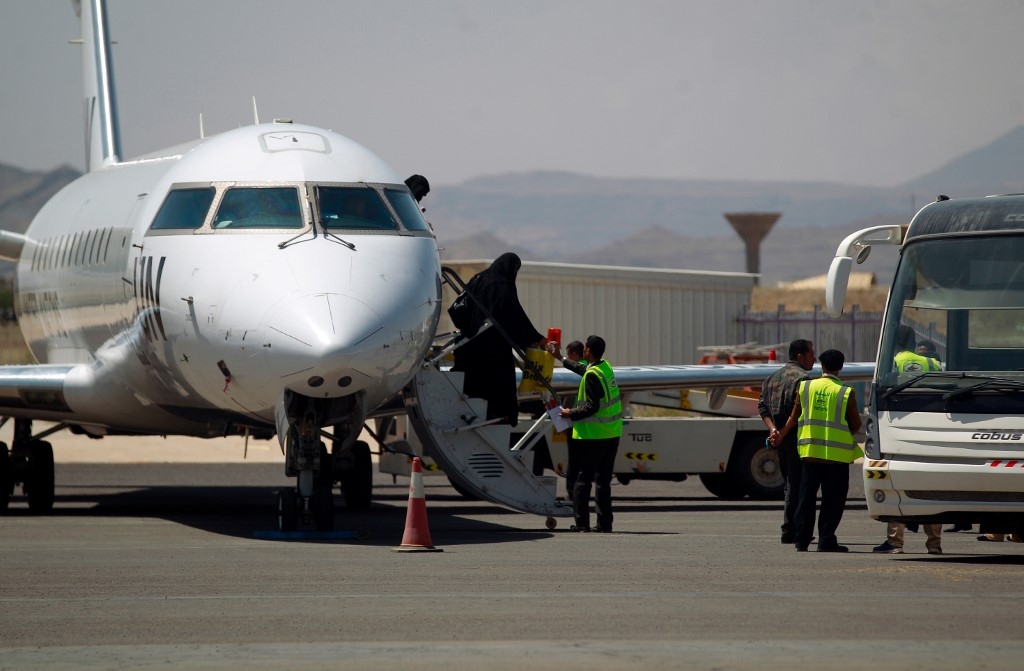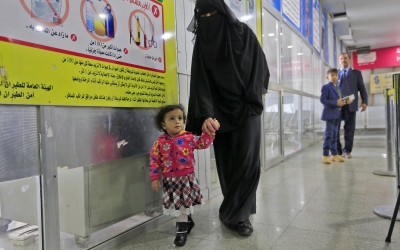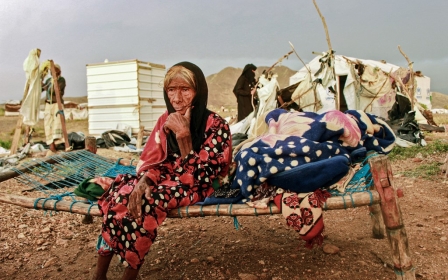Americans in Yemen left to fend for themselves and find own way home

Months into a coronavirus pandemic that has devastated Yemen, a country ravaged by five years of brutal war, the United States has been accused of doing little to repatriate permanent US residents and visa holders stranded in the country.
Since March, the State Department has sponsored dozens of repatriation flights, bringing home more than 100,000 people who were stuck in countries including Argentina, Peru and Saudi Arabia.
US officials told Middle East Eye that at least three flights were organised to bring back citizens and visa holders in late June, after Washington was accused of abandoning its people in Yemen. Then when the country's internationally recognised government reinstated commercial flights from Aden, the temporary capital in the south of the country, Washington cancelled plans to arrange any new flights.
'The US picks and chooses which American citizens it values... sadly, the Yemeni American community is on the bottom of that list.'
- Debbie Almontaser, Yemeni-American Merchants Association
Advocates told MEE that many Yemenis who could leave, did so immediately, hastily arranging flights to neighbouring Arab countries and subsequently made their own way home.
Still, in a country that has no US consular presence and the devastating war has severely restricted inter-city travel, hundreds of Yemeni Americans remain trapped in areas either controlled by Houthi rebels who monitor their movements, or are unable to leave because of expired travel documents.
New MEE newsletter: Jerusalem Dispatch
Sign up to get the latest insights and analysis on Israel-Palestine, alongside Turkey Unpacked and other MEE newsletters
"The US picks and chooses which American citizens it values and gives the utmost priority to protect and defend them," Debbie Almontaser, co-founder of the Yemeni-American Merchants Association, told MEE. "Sadly, the Yemeni-American community is on the bottom of that list."
Creating consular services
The Council on American-Islamic Relations (CAIR), which has received requests from about 600 people wanting to return to the US, told MEE that the lack of a strategy from the White House concerning Yemeni Americans was tearing some families apart.
The organisation cited the case of Miriam, an American citizen and mother of four, who is stuck in the impoverished country and was forced to give birth there amid air strikes and a coronavirus lockdown, all while her husband was, and still is, thousands of miles away in the US.
CAIR said the US government told her she was free to return home but must leave her newborn behind since the child does not have any official paperwork.
"The State Department is stranding this entire family there," said Ahmed Mohamed, CAIR-NY's litigation director.
"There's no way any mother would leave her child behind."
Mohamed told MEE that a coalition of rights groups had urged the State Department to handle consular requests virtually, through videoconferencing, since Washington closed its embassy there in early 2015 after war erupted.
According to Almontaser, the organisations have repeatedly called for consular services to be established in Aden, the port city where commercial flights are currently operating, and their calls have fallen on deaf ears.
"This request has yet to materialise," she said.
'An intentional action'
Since President Donald Trump announced his "Muslim ban" - a law that would keep citizens from six predominately Muslim states from entering the US - Yemeni Americans who wanted to see their families had to go to Yemen. Many of the people currently stranded there were visiting elderly or sick relatives when the borders closed.
"Banning people, American citizens, from coming back to their country is a violation of our rights, of our civil rights," said Vetnah Monessar, the executive director of the MASA foundation, a non-profit based in Orlando, Florida.
"Unfortunately, we are in a really bad place in Yemen and no one is highlighting that."
For many Yemeni Americans, this ambivalence began with Washington's response after the conflict first erupted in 2014.
When Saudi Arabia intervened in the country's war in early 2015 as part of an effort to roll back military gains by Houthi rebels, who they see as Iranian proxies, several countries made efforts to bring home their nationals.
While China, India and Pakistan sent frigates and airlifted their countrymen, Washington, despite having the USS Simpson and the USS Sterett in or near the Gulf of Aden, refused to intervene and evacuate its nationals.
"Yemeni Americans were forced to fend for themselves and figure out how to get themselves out of Yemen," Almontaser told MEE. She said that her daughter and son-in-law, who was not an American citizen at the time, were only able to leave after procuring a waiver from a congresswoman and senator.
"Asking the State Department to repatriate Americans is one of their core missions," Mohamed, from CAIR, said.
"And the State Department took on that mission very, very seriously with the exception of Americans stranded in Yemen.
"When you're disregarding the lives of Yemeni Americans, it shows an intentional action by the State Department and the US government, basically saying we're going to value the lives of other Americans more than those of Yemeni ancestry."
Middle East Eye delivers independent and unrivalled coverage and analysis of the Middle East, North Africa and beyond. To learn more about republishing this content and the associated fees, please fill out this form. More about MEE can be found here.






